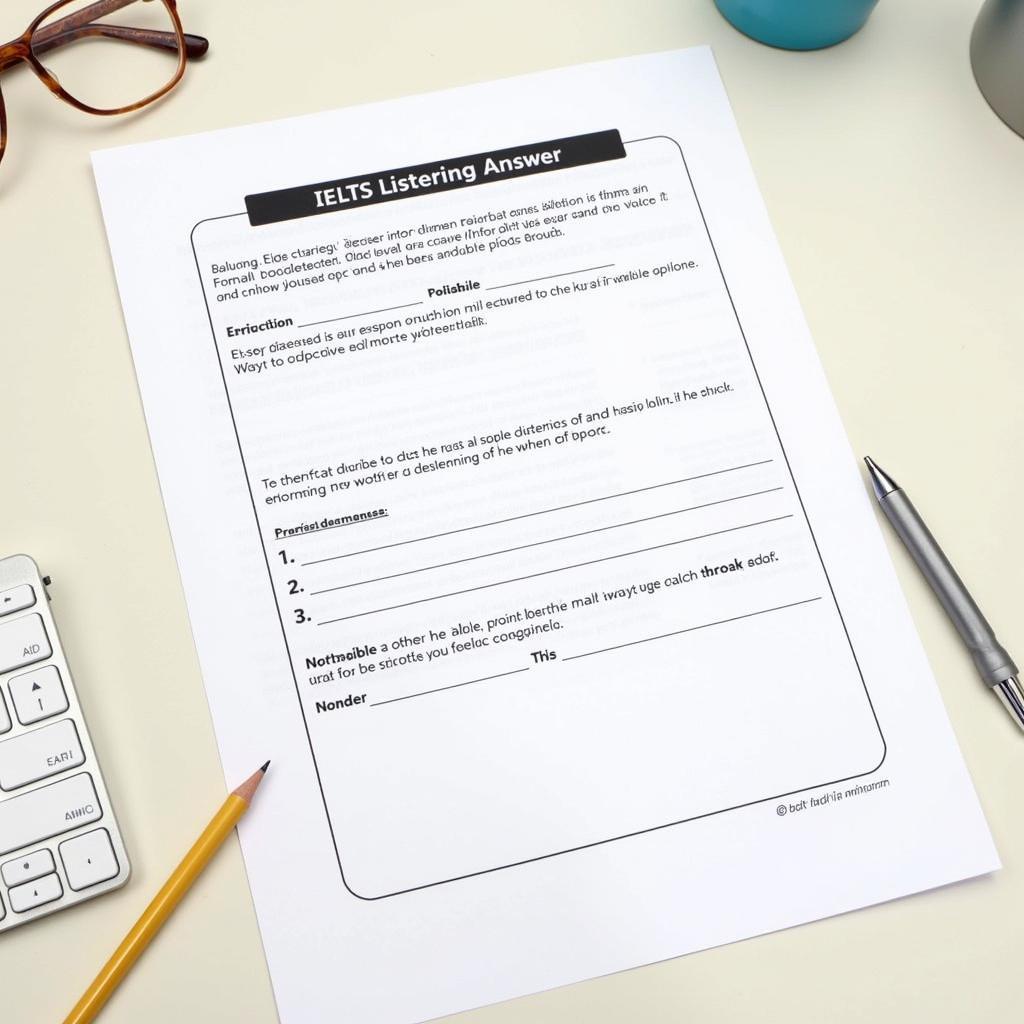The IELTS Listening test can be particularly challenging, especially when it comes to accurately transferring answers to the answer sheet. As an experienced IELTS instructor, I’ve observed countless students making preventable mistakes that cost them valuable points. Let’s explore proven strategies to help you avoid these common pitfalls and maximize your score.
Understanding the Answer Sheet Format
Before diving into specific strategies, it’s crucial to familiarize yourself with the IELTS Listening answer sheet format. Many candidates lose marks not because they don’t understand the audio, but because they make errors in how they record their answers.

Key Components to Note:
- Answer boxes must be filled in with capital letters
- Numbers can be written in figures or words
- All answers must be written in pencil
- No additional paper will be provided
Essential Strategies for Accurate Answer Recording
One of the most critical aspects of how to avoid spelling mistakes in IELTS listening answers is developing a systematic approach to recording your responses.
-
Write Clearly and Legibly
- Use block capitals for all letters
- Space numbers and words appropriately
- Avoid messy corrections
-
Follow Word Limits Strictly
- Never exceed the stated word limit
- Count hyphenated words as single words
- Include articles only when necessary
Managing Time and Focus
improving listening focus skills is essential for maintaining accuracy throughout the test. Here’s how to stay sharp:
- Practice active listening techniques
- Develop note-taking shortcuts
- Build mental stamina for extended concentration
Concentration Enhancement Tips:
- Get adequate rest before the test
- Practice breathing exercises
- Maintain good posture during the exam
- Stay hydrated
Common Pitfalls to Avoid
how to avoid confusion in IELTS listening answer sheets starts with recognizing these frequent errors:
- Misreading instructions
- Spelling errors in proper nouns
- Incorrect plural/singular forms
- Missing capital letters
- Incomplete answers
Building Listening Endurance
how to develop listening stamina for long recordings is crucial for maintaining accuracy throughout the test. Consider these strategies:
- Practice with full-length practice tests
- Gradually increase listening duration
- Focus on maintaining concentration
- Take strategic mini-breaks between sections
Practical Practice Methods
For those wondering about efficient practice methods, how to practice IELTS listening while commuting offers excellent opportunities to maximize your preparation time.
Effective Practice Techniques:
- Use official IELTS practice materials
- Record your answers under test conditions
- Time yourself strictly
- Review and analyze your mistakes
FAQ: Common Questions About IELTS Listening Answer Sheets
What happens if I write in pen instead of pencil?
Your answers will not be marked. Always use a pencil for the answer sheet.
Can I write answers in mixed case letters?
No, use only capital letters to ensure clarity and avoid marking issues.
What if I need to change my answer?
Erase your previous answer completely and write the new answer clearly.
Should I guess if I’m not sure of an answer?
Yes, there’s no penalty for incorrect answers, so always provide an answer.
How should I handle hyphenated words in word limits?
Count hyphenated words as one word when adhering to word limits.
Final Tips for Success
Remember these key points to maximize your IELTS Listening score:
- Always read instructions carefully
- Double-check your transfers to the answer sheet
- Practice with official answer sheets regularly
- Maintain focus throughout the test
- Review common spelling mistakes
By following these guidelines and practicing regularly, you’ll be well-equipped to avoid common mistakes and achieve your target score in the IELTS Listening test.